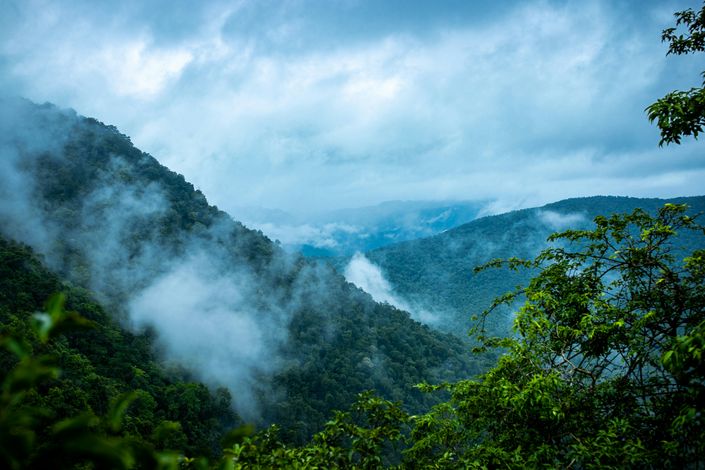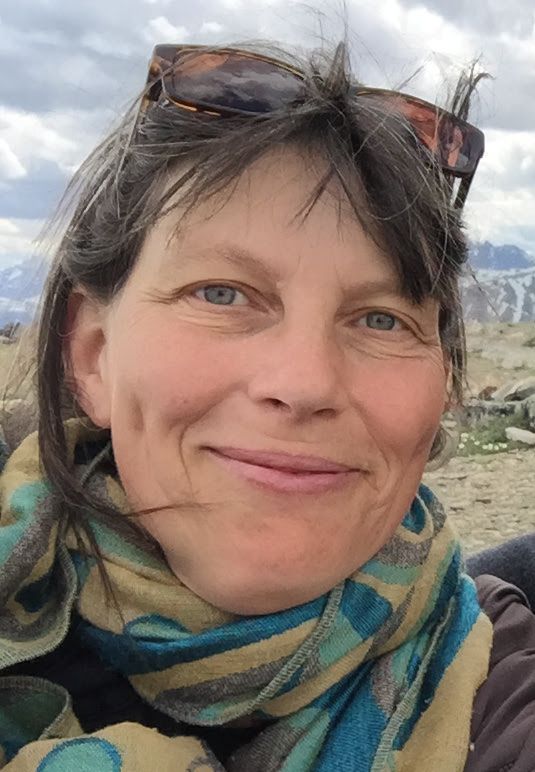
Cooling the Climate Mini Workshop with Peter Bunyard and Didi Pershouse
How life's processes create the climate we love. This is a recording of our class on October 29th. If you register you will get access to the recording, transcript and chat files.
Enroll in Course
THIS WORKSHOP HAS ALREADY HAPPENED BUT YOU CAN STILL SIGN UP TO ACCESS THE RECORDING, TRANSCRIPT, AND CHAT FILES!
Cooling the Climate Mini-Workshop
Wednesday, October 29th, 11 AM Eastern Daylight Time (New York, USA).
Join UK author Peter Bunyard and US author and educator Didi Pershouse for a live online participatory workshop about life's influence on climate and weather, and the potential to cool regional climates through reviving the biosphere. (The workshop and a written transcript will also be recorded for those who can't make it live.)
Last week we had a robust discussion and workshop with Rob De Laet. This week we get to dive back in with Rob's co-author Peter Bunyard! Together they researched and wrote the book ‘Cooling the Climate - How to Revive the Biosphere and Cool the Earth Within 20 Years,
Bunyard and De Laet's book Cooling the Climate draws on James Lovelock’s Gaia Theory and Indigenous cosmologies, positing that Earth functions as a living organism, with ecosystems maintaining life-supporting conditions. The book explores the atmosphere's role within this living planet, emphasizing water's critical function, based on Peter Bunyard's earlier work, "Climate Chaos." It shows how the interaction between the biosphere, soils, water, and the atmosphere stabilizes weather and cools the planet, but ecosystem destruction disrupts these cycles, contributing to global warming. Restoring ecosystems and transitioning agriculture can quickly stabilize the climate, offering effective solutions. Implementing these strategies globally can mitigate the worst effects of climate change within decades, protect biodiversity, and address social inequities. While reducing emissions is essential, repairing nature and water cycles through regenerative agriculture, agroforestry, and ecosystem restoration is equally vital. These efforts can restore the planet’s natural balance, leading to a sustainable and abundant future.
About Peter Bunyard
Peter Bunyard is a British environmental scientist, author, and lecturer known for his work in climate science, rainforest ecology, and hydrology. He has extensively studied the Amazon rainforest's role in regulating the Earth's climate and is a strong advocate for ecological restoration to combat climate change. Bunyard has authored several books and numerous articles on environmental issues, emphasizing the interconnectedness of ecosystems and the importance of preserving biodiversity. His work highlights the urgent need to restore degraded landscapes and protect natural systems to ensure a stable and resilient planet. We will hear how he got into this work, his collaborations with Lovelock and others, and the experiments he has done in his own backyard laboratory to confirm the biotic pump theory, and as always, we will have a robust discussion of how this applies to our own projects and work.

Pershouse, de Laet and Bunyard have all been voices sharing the message that to address the climate crisis, we must transform our social and economic approaches, while gaining a much more holistic understanding of climate. As Bunyard puts it "the climate we have enjoyed is a result of all of life's activities."
(You do not need to have attended the first workshop in order to attend this one. If you want to access the recording of last week's workshop with Rob de Laet, you can sign up here.)
“The new and yet ancient paradigm, of our being wholly dependent on the well-being of the natural world, necessitates an understanding of the biosphere as a vast interconnected web of life, which has come into being by means of its evolutionary and genetic connections to the past. In this world view all living organisms are intricately linked and mutually dependent. This perspective is grounded in a holistic and eco-centric understanding of the world, contrasting sharply with the human-centered and Cartesian rationalist worldview that has been prevalent in Western thought for centuries and which must now be radically modified."
--From Peter Bunyard and Rob de Laet's book: Cooling the Climate: How to Revive the Biosphere and Cool the Earth Within 20 Years
Sign up below to get the recording for this exciting mini workshop and discussion.
Your Instructor

Didi Pershouse is well known as an innovative international educator both in-person and online. She is the founder of the Land and Leadership Initiative. Her facilitator's guide Understanding Soil Health and Watershed Function is used in over 90 countries.
She became deeply involved in the intersection of food systems and health systems while providing rural health care for two decades at The Center for Sustainable Medicine, and wrote The Ecology of Care: Medicine, Agriculture, Money, and the Quiet Power of Human and Microbial Communities.
She has written a field training manual for the UN-FAO Farmer Field School Program and the Andhra Pradesh Community Managed Natural Farming Initiative in India, involving over 1,000,000 smallholder farmers. She was a contributing author to The Climate Emergency: How Africa Can Survive and Thrive; Climate Change and Creation Care; and Health in the Anthropocene. She was one of five speakers at the United Nations-FAO World Soil Day in 2017.
She serves on the Planning Commission for her town, is a board supervisor for the White River Natural Resources Conservation District, and is on the board of directors of Regenerate Earth, Soil Carbon Coalition and the Vermont Healthy Soils Coalition. While serving on the state appointed Payment for Ecosystem Services and Soil Health Working Group, she helped to reorient the program back to its public roots. She led a successful effort to conserve the Zebedee Headwaters Wetland while serving as a Vermont Conservation Commissioner.
She is on the Vision Council of the Global Earth Repair Convergence, and a member of the Ecosystem Restoration Alliance. She is a lineage member of the Change Agent Development Community (stewarded by Carol Sanford), and is seeding new communities of practice in a Wisdom tradition that uses living systems thinking.
